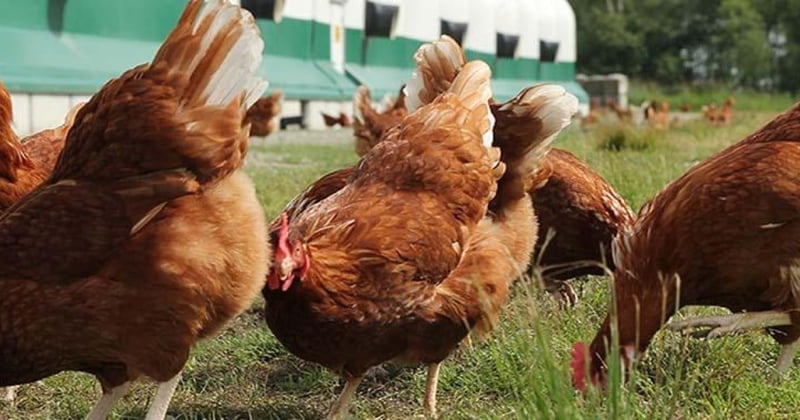
5 Questions with...Cindy Lewicki
News
A small-town farmer in Plainville, Massachusetts shares her love for hens and how she considers them part of her family.
1. What made you interested in raising hens and egg farming in the first place?
We had friends that had chickens, and we loved going over there to get fresh eggs. It was a good feeling for us knowing that the eggs we were eating came from hens living in good conditions. Shortly after, we realized how great it would be to have our own chickens and our own eggs. We were already into vegetable and fruit gardening so we thought it would be a great addition to the farm. We have had hens for about 13 years now. As a family, we sit outside a lot and it's comforting for us to have the hens pecking around the yard. We enjoy the fact that our hens are happy and healthy.
2. How much time do your hens spend outdoors each day?
Our hens sleep in a spacious coop where they have indoor and outdoor access. Right after dawn, they come out of the coop area and spend the day roaming free and pecking the grass in our yard. They then return to the coop area in the evening. Unfortunately we live in an area that is filled with coyotes and foxes, so it's very important that they go to bed in the evening somewhere safe. We have lost our hens to wild animals at night, and since there's nothing you can do to stop that, your best bet is to keep them safe.
3. What have you learned from the hens on your farm?
We have found, at least on our farm, that our hens seem a lot less stressed when separated from roosters. So we keep our farm to just hens. The ladies are very relaxed and therefore extremely productive. The bond between them is really remarkable. It reminds me of how important it is to have a ladies night every so often with my closest girlfriends.
4. What advice would you give people who are thinking about raising hens?
I would tell people to start off slow. Do not get a bunch of hens and think it's a cakewalk. They are a lot of work, and it’s not fair to the hens if you can’t give them the time they deserve. We keep their living area extremely clean. They always have food and water. We even make sure that the food and water is kept warm throughout winter months. It's a lot of work, and if you aren't prepared to put in a significant amount of work, you will end up giving up. They are living, breathing creatures that rely on humans for survival. You have to take care of them, or they will die. You can't just go away on vacation and think they will take care of themselves. Your best bet is to treat them as a pet… a very giving pet.
5. What’s one of your favorite hen memories?
My favorite memories are from when they are young. It's a very short span of time, but they are so cute and love to be held in the beginning. They will actually fall asleep on you. We have so many pictures through the years of our kids and other kids holding and cuddling with the little chicks. Now that they are older, my fondest memories are just being outside as a family and having them around us. They are great company.
Do you raise cage-free hens? We would love to share your story! Get in touch with us on our Facebook page or on Twitter.
As Cindy states in her interview above, if you're thinking of starting your own flock, please make sure you do the homework. A rural environment is best for hens. You will need to make sure they have a safe and comfortable coop where they can perch at night, safe from predators. Make sure you have a vet that will accept your hens when they are sick and a plan for a humane end of life if that becomes necessary. Please also consider adopting a rescued hen from an animal sanctuary instead of purchasing chicks through a hatchery. Finally, connect with someone who has previous experience and is happy to give advice. Ask lots of questions so you are well-prepared!
It was a good feeling for us knowing that the eggs we were eating came from hens living in good conditions.
